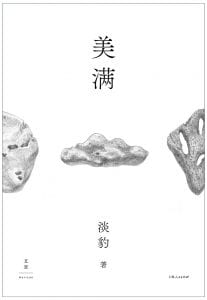Author: jiayizhu
11/20 Danbao
Chinese Novelist, former PhD student in Anthropology
“How Do You Tell New Stories of “Guanxi”? Writing and Publishing Fiction in Today’s China”
Time: Friday, November 20th, 5-7 pm CST
Zoom Registration: https://uchicago.zoom.us/meeting/register/tJIvduGrqjoiHNONWLZEQF_K9VEyZAiOXI7T
Discussant: Yueling Ji, Ph.D. Candidate, EALC
The Art and Politics of East Asia (APEA) workshop is proud to host Danbao (Chinese Novelist and former PhD student in Anthropology), who will talk about her newly published book 美满 (roughly translated as Perfectly Satisfactory) this Friday. Note that the event will be mostly Chinese with opportunity to ask questions in English during the Q&A. She summarizes her short stories as follows:
《女儿》,试图用中国旧小说的“夹叙夹议”办法,用一对情侣的分手讲男性的自高自大、有限的反省、对女性的轻视、以及他们(不肯承认的那些!)对家庭的依赖。
《山河》,一位二十多岁的女孩——一个私生女——回忆她短暂的人生。她希望自己能和父母的“活法”有所区别;
《父母》,一对普通父母失去其“独生子女”后,展开了对再次生育和新生活的探索;
《乱世佳人》,三个人物,一家三口,一个典型的中国城市家庭:李先生、李太太、女儿小李。李太太看着《乱世佳人》译制片长大,想要成为一个勇敢、独立的女性,觉得那样有魅力。她却发现自己难以原谅丈夫的出轨。
《你还记得在上州给我变魔术吗?》,一对前恋人如今分隔在太平洋两岸。其中的那位女性是生活北京的插画艺术家对周围处处反感,又处处眷恋,她认为自己只能这样在中国活下去,又受不了“这样的中国”。
Protected: CARL KUBLER’S PAPER
10/30 Carl Kubler
PhD Candidate, History
“European Vernaculars in Late Imperial China: Texts and Contexts before the Treaty Ports”
Time: Friday, October 30th, 3-5 pm
Zoom Registration: https://uchicago.zoom.us/meeting/register/tJIvduGrqjoiHNONWLZEQF_K9VEyZAiOXI7T
Discussant: Yin Cai, Ph.D. Candidate, EALC
The Art and Politics of East Asia (APEA) workshop is proud to host Carl Kubler (Ph.D. Candidate, History), who will present his dissertation chapter “European Vernaculars in Late Imperial China: Texts and Contexts before the Treaty Ports” this Friday. He summarizes his chapter as follows:
Although many scholars of late imperial China have analyzed in detail the economic and political dimensions of Chinese trade with the West in the eighteenth and nineteenth centuries, fewer have considered the routine linguistic mechanisms and practices that facilitated commercial and cross-cultural interactions on the ground level. This chapter examines European language learning among Chinese commoners in the decades leading up to the first Opium War (1839-1842) and shows how a better understanding of translingual interaction can deepen our understanding of everyday exchanges and relationships.

